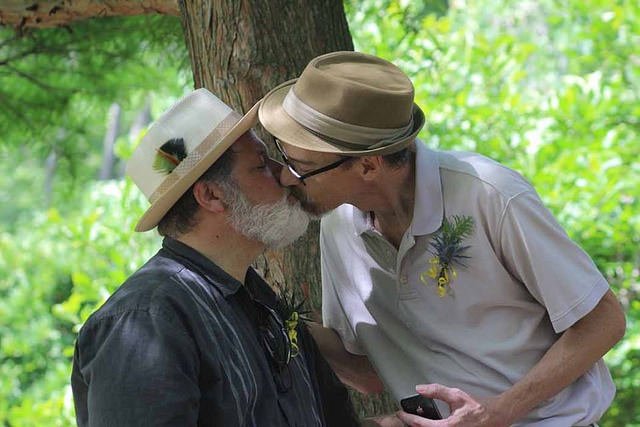 There has been a judgement this morning in an iconic legal case in Northern Ireland. A judge has found that a bakery discriminated against a gay customer over their refusal to bake a cake which had a slogan on it supporting the right of gay people to be married.
There has been a judgement this morning in an iconic legal case in Northern Ireland. A judge has found that a bakery discriminated against a gay customer over their refusal to bake a cake which had a slogan on it supporting the right of gay people to be married.
The decision was the right one. There will be shrieks of outrage from many. There will be a backlash which may be dreadful. However it is still the right decision.
It is the right decision because the law is quite clear that people can’t be denied goods or services because they happen to be gay.
If there were opt outs from this law because of the views of those supplying goods and services then the law would have no effect at all. That’s the whole point of this law. If gay people are going to be able to live in a world where they are not discriminated against then godly Christians don’t get to chose not to have that law. So called bible-believing Christians didn’t ought to have a problem with this because they have an obligation to live under the law. Check out Romans 13 if you don’t believe me.
This is also not a clash of rights between the gays and the Christians. No. Gay people have a right not to be discriminated against in shops but crucially the same law gives the same right to Christians. If a Christian wants to go into a shop and order a cake then gay owners can’t discriminate against them on the grounds of religion.
The point of all this is not that gay people are privileged in the law, they are not. The point is that customers, all customers, are protected from being discriminated against due to their sexuality or their religion or indeed a number of other categories too.
You can’t refuse to bake a cake because your customers want it to say, “God so loved the world that he gave his only son Jesus”. You can’t refuse to have a Christian couple staying in your Bed and Breakfast because you happen to be a pagan or an atheist. And that’s right and proper. You can’t refuse to produce a pro-gay cake nor refuse a gay couple a bed in a B and B. And that’s right too.
These rights are what we need for a good society to flourish.
People sometimes remember the kind of signs that used to appear outside premises before the various pieces of anti-discrimination law were passed.
“No blacks, no dogs, no Irish” is one famous example of appalling discrimination.
Those in Northern Ireland need to remember that these laws protect us all.

Recent Comments